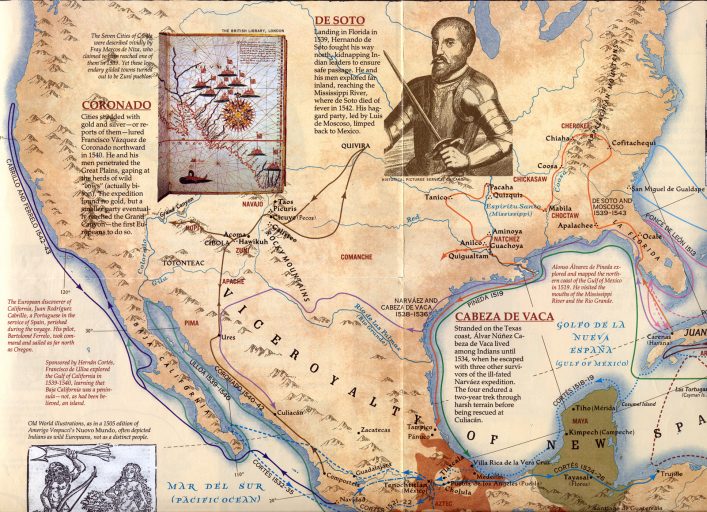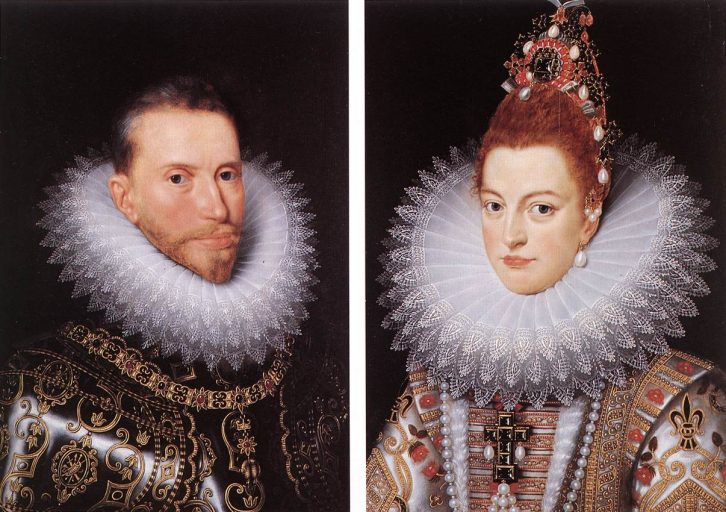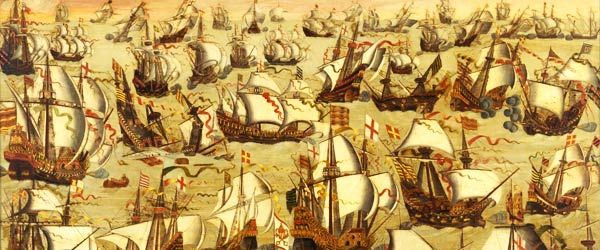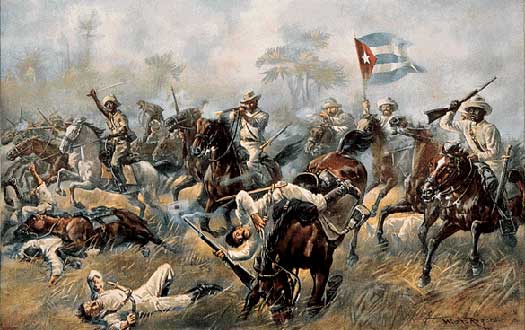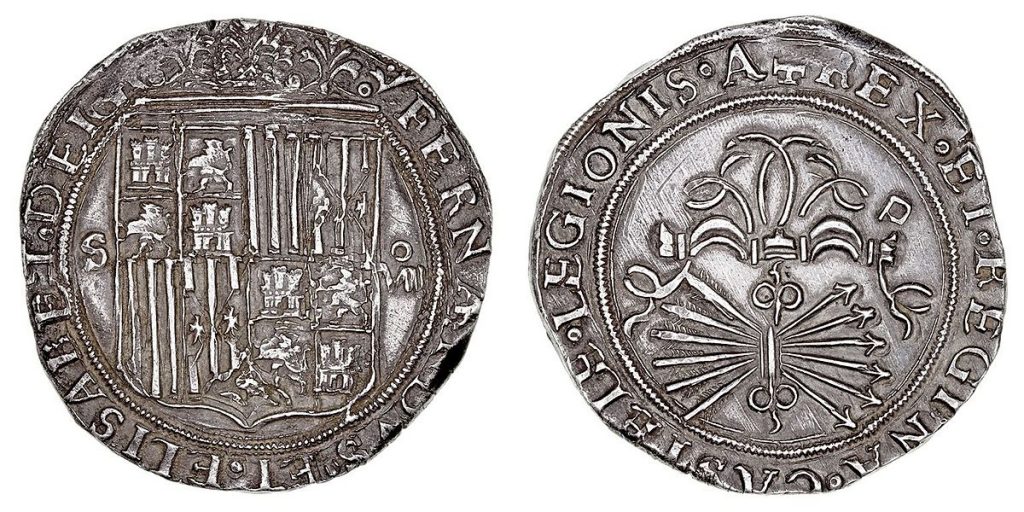“The Spanish Empire eventually collapsed because of its expensive taste for warfare and conquest.
-Robert Kiyosaki
OUTLINE:
- Introduction: Ineffective economic and political decisions and strategies are the reasons behind fall of Spanish Empire
- Double decline of the empire: A theoretical perspective of different historians and researchers
- Rise of Empire: Emergence of Spanish Empire as a greatest power on the face of the earth
- Political rise: Wedding of monarchs Isabella of Castile and Ferdinand II of Argo and other accomplishments
- Political fall: Discovery of America by Christopher Columbus, separation of Netherlands and other factors
- Disastrous condition: Unstable conditions of states and defeated wars
- Devastating effects: Impact of wars and conflicts on Spanish Empire and its political system
- Economic fall: Silver and gold supply from Americans, inflation, wasted industries, taxes and absence of middle class
- Economic fall: A war’s perspective and dwindling trading opportunities through the port of Seville and America, loss of credibility and confidence of merchants
- Conclusion: A brief reflection of overall posit
Evidently, an empire based on a fundamental state that subject to control vast and numerous territories along with diversity of populace. Empires expand and indulge rise by spreading the span of their influence and power; on the other hand any lurch in controlling approach can cause a substantial fall of empire all in sudden. Historians and chronological annals analyze the processes and underlying reasons of falls of different empires to generate a better comprehension of the subject. An empire practices political control over a huge territory comprised of many diverse groups of people.
Empires are generally addressed as a solo unit and when historians talk about fall of an empire it means the decrepit condition of the central state which can no longer exercised its vast span of authority. Such falls occur because states quit their existence or eradicate the power because of some of its territories and parts claim independency and autonomy. Empires are huge and complicated and therefore historians underline the decline of an empire in the context of an elongated procedural, instead of elaborating a single reason. Some major factors which can bring the fall to the fate of an empire are economic problems, societal and cultural matters, political issues and environmental factors. The following paper analyzes fall of Spanish empire which was apparently caused by implication of ineffective political and economic strategies.
Scott Eastman (2014) affirms that Spanish empire was not established enough long before its actual decline. Eastman quotes Matthew Restall and underlines that “surely the notion of Spain as an empire in perpetual decline long ago became a paper tiger.” (Eastman, 2014) for this reason historians and annals assert that Spain encountered double failure. According to this posit; Spanish Empire never developed synchronization with the alignment of other successful western states. Moreover the empire never heeded to adopt the political and economic models in the region. Regardless of flawless success and triumphs and establishment of a broad realm, Spain never produced advantages from imperial growth and expansion as its competitors did. The similar flaws of Spanish strategies are pointed out by many other contemporary researchers including Nicolas Masson de Marvilliers and Voltaire (Eastman, 2014) both affirm the ignorant conditions of Spain and agree that it was the most unaware and uninformed nation throughout the Europe, and for this purpose several African savaged regions even did not know about the existence of it.
. The ignorant and not-so-popular Spanish Empire continued to remain like this till the dawn of sixteenth century. The lack of natural resources and other flaws suddenly “and even miraculously, to have been overcome,” (Elliot, 1970) Spain according to historical perspective was just a geographical implication which all of nowhere turned into a chronological marvel. The alteration and transformation was significant and precisely observable. The subject change is stated by Machiavelli as he says that “we have in our days, Ferdinand, King of Argon, the present king of Spain, who may not improperly, be called a new prince, since he has been transformed from a small and weak king into the greatest monarch in the Christendom.” (Machiavelli, 1532) Subsequent to those sudden transformation diplomats from the court of Ferdinand indulged great esteem and people fear the armies of king.
The marvels of monarch persisted for a few tremendous decades and throughout this era Spain turned into the greatest and powerful kingdom on the planet. Apparently, Spain was not an only nation of Europe which developed an international realm; “that honor if honor it may be called, belongs to the Portuguese.” (Maltby, 2009) However, Spanish Empire was different and unique from other worldwide empires in many aspects, which include an explicit span of command and sovereignty across and over huge lands as well as diverse civilizations which comprised of millions of non-European population. Along with diversity and hierarchy of commanding, Spanish Empire also paid additional attention to its cultural, lingual, credibility and other similar issues to a great extent. Through this epoch fortune was kind to Spain and was assisting it to inscribe an impressive expression on the face of the earth. Spain experienced both economic and political rise during this period Spain could become the master of European region, it had unshared opportunity to develop vast colonies and conquer great territories overseas. There was an utter need to devise some smart strategies to administer the governmental system to manage the diverse and wide-spread empire. Only through a unique strategy of civilization Spain could have make an unmatched contribution to the cultural and traditional backdrop of Europe. But it never happened and Spanish empire fell down eventually.
The dwindling Empire of Spain got a chance to establish its condition by sustaining its political status through wedlock of monarchs. The subject wedding took place in 1496’s October within the premises of the Valladolid in a private residency. According to this ceremony Sicily’s King Ferdinand II which was also the rightful heir to the throne of Aragon became legally married to Isabella the rightful heiress of Castile. Both Isabella and Ferdinand were second cousins and belonged to House Trastamara. The marriage conducted in a secret manner because of several threats posed by brother of Isabella. The marital relationship of both heirs became the substantial reason of the unexpected rise of Spain. Through this wedding Spain got funds and financing to support the foreign military ventures. Moreover, through this knot, they both became capable to protect the borders of their regions. Evidently, the wedding of monarchs connected the entire Spain and established its reputation as a strong catholic-based Christian country. Throughout the epoch of its political rise, Spain claimed its supremacy all across the Mediterranean region. The funds and adequate financing fueled up the armies in foreign lands and they conquered over the Turk’s Ottoman Empire. Furthermore, Spain subjugated Portugal and this triumph was so influential that it allowed Spain to take control over India and Africa as well.
It was the year 1492 when Christopher Columbus arrived back and brought the news about existence of America. According to Columbus, he first considered it as an alternative path to Indies but eventually he realized that it was merely a misjudgment. In short, the existence of a new place evoked desire in monarch couple to conquer that. It was a fashion in that era to keep conquering new lands. However Spanish empire belived in the most brutal ones. It was the beginning of series of Spanish wars which lasted for about thirty years and wrong and ineffective decisions and strategies brought decline to the great empire of Spain. It was the year 1588, when Spanish Armada gathered and embarked to raid England. At that time Philip was the king of Spain and he commanded dispatch of about one hundred and thirty ships for the subject invasion. However, regardless of their magnitude England battleships undermined the Spanish war crafts and utilized their mighty long-ranged cannons to bombarding the Spanish vessels. Consequently, the defeat marked a crippling effect on the Spanish dominance over sea ways. Along with external blow Spain encountered perplexity internally as well. Netherlands claimed independence, left the Spain and started to fend for themselves. After these circumstances Spain had to cope with independency because Spain was entirely reliant on Netherlands to continue Catholicism as underlying religion of the region.
The elongated series of unfortunate events and catastrophes led Spain to the colonial wars of 1898. (Balfour, 2011) It was the period from 1809 to 1810 when Buenos Aires instead of Asuncion is opted as the capital of new viceroyalty of La Plata. The matter in turn evoked the surge of defiance in Sucre, and in the due course Bolivia declared as the first American province which generated insurgency against Spanish authorities. And to support the rebel cause, a young Carcass officer named Simon Bolivar played an imminent role in the coup and to attain a control over Venezuela by snatching it from Spain. (Musicant, 1998) the ineffective battling strategies and impractical decisions of Spanish Empire led it to tackle an uncompetitive war with Americans which consequently ended in the defeat of Spain. The most basic reason for the subject defeat was wrongly implicated war tactics which dispersed the army within battlefield. On the contrary, American High Command very effectively handled all the troops and directed them to particular points according to the strategic planning that formulated through acquired information by local rebels. American troops depended largely on the insurgents’ army particularly in Cuba. These rebel armies had already won the war virtually in the eastern region and engaged Spanish stronghold at this point and provided American forces to move forward in the direction of Santiago. (Belfour, 2011)
The disastrous effects of the wars and defeat burst the bubble of Spanish supremacy, and unfortunately this illusion was the pillar of traditional and national cultural identity of Spain. Consequently the trouncing of last elegance of Spanish Empire evoked an extreme post-imperial disaster among different fragments of Spanish societies. Political system of Spain was taken as the national character which became questionable and uncertain even for the Spanish nation. The side effects of defeat were immense because it was the apex point through the age of empire. It was the era when conquest and ownership of different colonies, territories, and new lands was considered as a bench-mark of stability and success of a nation, which in turn allow their survival. As the time passed, most of the nations of state merged with other European countries, and therefore the nation-state of Spain became more and more weak and vulnerable by the forces of centrifugals. Historians believe that this fadedness was the reason of bumpy ride of modernization. On the other hand the several Spanish parts were encountering swift procedural of societal and economic alteration meanwhile the other broad regions of the realm were totally unmodernized. Consequently the gap between two parts of the empire generated economic gap and augmented the cultural and political discriminations and differences which in turn developed more complexity to resolve the crisis of political system. And in this way ineffective decisions and strategies dragged Spanish empire in the pit of decline.
Similarly, the ineffective and impractical strategies and tactics on the economic grounds play a prominent role in the demise of empire. Spain indulged a Golden Age which came with power and expansion of wealth. Throughout the golden age Spain promoted different artists, playwrights as well as poets. However, Spanish authorities allowed Americans to fuel the economy with their endless supply of silver and gold. This supply of valuable metal from America continued of about a full century and caused terrible and dreadful inflation. The phenomenon destructed the Spanish industry to a great extent because in the presence of foreign gold and silver it was convenient to buy goods from outside of the country instead to produce goods within state. Consequently, with each passing year Spain lost its capacity to meet the production demands even of its colonies, and as a result most of the wealth exchanged to the European marketplace to obtain desired manufactured products.
Similarly, the subject royal strategy to tackle the economic matters ruined the flourishing and profitable silk industry of Spain which was established by Castile and centered in the Granada. Likewise, the imprudent governmental intervention wasted the agricultural fruition through sixteenth century. Moreover, Spain practiced brutal and unfair practices throughout the 1500s and consequently banished thousands of moors, Jews and Muslims and in the due course Spain lost the valuable treasures of artisan and business entities. Furthermore, the unequal implications of taxes freed rich men to pay governmental taxes and phenomenally all burden of state-wide taxes laid heavily on the feeble shoulders of lower class people. And Spanish government never permitted these people to commence their own businesses and for this reason Spain did not have a middle-class. Furthermore, the import of unchecked gold and silver from America created severe inflation. And because of abundance the value of silver decreased in the local markets. On the other hand, Spain confronted an increasing pattern in populace. All these factors smoothed the pavement for ultimate price revolution which in turn strained the governmental budgets to a great extent.
The epoch of Castile was the most flourishing and prosper era in the history of Spain as it established economic stability to cater the requirements of Spain through sixteenth and seventeenth centuries. Nevertheless, the elongated and tiresome thirty-year war along with Spanish squabbles with France exhausted the financial potential of Castile. (Elliot, 2002) The tax rules and other relevant factor made it tougher to aid material needs of armies on every front. And as it is mentioned in above content, that the economic position of Spanish was not very good because of their dumb policies and the only sustainable trade source which was imperatively connected Seville with America was also facing downfall. Historians assert that it was the major fault of Spain’s then-finance minister named Olivares; his ongoing confiscations of remittance and involvement of silver through American trade led to destructible outcomes of ultimate failure. In the due course the trading faculties shed their trust because with every passing day, shipping of Seville depicted a perishing effect and consequently by the year 1640 Spanish remittance of silver stuck suddenly because there were remained no fleets of silver. As a result, the prolonged established confidence and credibility of Seville trading came to halt and gradually crumbled the Spanish monarch along with it. (Elliott, 2011)
By analyzing above-content it becomes evident that the historical decline of Spanish Empire was the outcome of many amalgamated factors among which ineffective economic and political decisions and strategies were most prominent. Money and economic factor were in a fit through seventeenth century and regardless of tons and tons of imported American gold the situation never got better. The lesson one can learn from the rise and fall of Spanish Empire is that triumphing over an empire is one thing and effectively and efficiently managing and organizing it quite another thing. Conquerors populace sometimes deny to accept the conquest of winners because of unfair, brutal and selfish practices of authorities as it happened with Spain and separated many populaces including Netherlands. And in turn, such situations lead to the wars and conflicts and require a big deal of money to tend the needs of ammunition and fending weapons that in turn causes adverse effect on the economy of a kingdom. Such incidents either minor or major cast worst impact on the overall performance, reputation and continuity of a realm. Take the instance of 1898’s disastrous events which damaged the remnants of Spanish empire and pulled it to the dark pit of darkness.
Even after many decades subsequent to that disaster the impact lingered within the field of armies, military and becomes a reference for reprimand. The ending of Spanish monarchy as a systemized legend can be said to take place only when the despotism ceased its vague and absurd financial and economic policies which was adjacent to the elongated notion of modernization in the augmenting tinge of progress and development through 1960s to 1970s. The unfortunate conclusion of Spanish imperial was substantially interconnected with the universal idea of secular and democratic values that associated with the notion of modernization. It was the point when Golden aged Spanish Empire lost its last colony in the year 1973 which was known as Spanish Sahara which subsequent to its independence pursued the path of democracy.
All the misery and misfortune and disintegration of great Spanish Empire gives a bottom line that not everything is perpetual and everlasting in this world and like an business organization great and mesmerizing empires too have to watch their steps before taking any substantial decision. An empire, country and state consist on several little factors which require a cautious deal of handling smartly, otherwise no one can evade the peril of eternal demise of the entity, because through reckless decisions and strategic implications failure is inevitable one way or other. Spanish Empire was a country which elevated to the apex of success and then abruptly drawn to the hedonic depths, a realm which attained almost everything but also lost every bit of its achievements; it triumph the planet juts to get vanquished in the due course. Elliot says that fruition of Spain was no doubt a wonder of Castile but failure and downfall of the great empire of Spain also certainly caused by Castile. Elliot says that “Castile has made Spain, and Castile has destroyed it.” (Elliot, 2011)
Reference
Balfour, S. (2010). The end of the Spanish empire, 1898-1923. Oxford: Clarendon Press.
Eastman, S. (2014). The spanish empire and atlantic world history. Journal of Colonialism and
Colonial History, 15(2), 0-0. doi:10.1353/cch.2014.0026
Elliott, J. H. Empires of the Atlantic World: Britain and Spain in America 1492-1830. Yale
University Press, 2006. JSTOR, www.jstor.org/stable/j.ctt1nq747.
Elliott, J. H. (1970). Imperial Spain: 1469-1716. Harmondsworth: Penguin Books.
Machiavelli, N., & Marriott, W. K. (2017). The prince. Place of publication not identified:
Project Gutenberg.
Maltby, W. S. (2009). The rise and fall of the Spanish Empire. London: Palgrave Macmillan.
Musicant, I. (1998). Empire by default: The Spanish-American war and the dawn of the
American century. New York: Henry Holt and Company.



